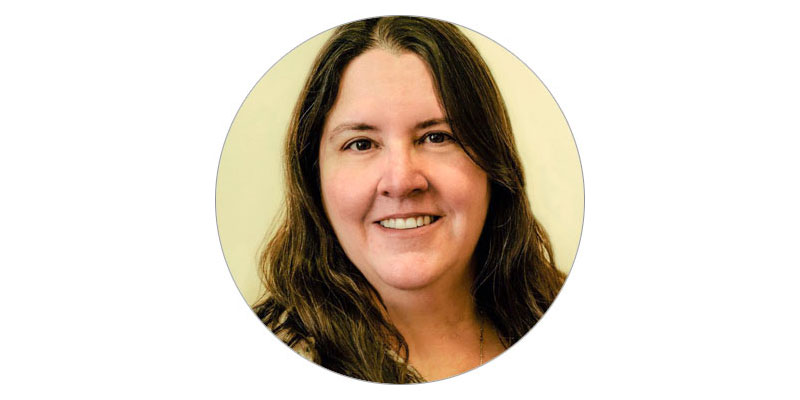Dr. Susan Vaught, Ph.D is a clinical neuropsychologist and serves as the Director of the Psychology Department at Western State Hospital in Kentucky. She provides clinical services to the hospital’s Multiple Medical Needs Unit and works extensively with the hospital’s special populations (geriatrics, brain injury, developmental disability, severe or chronic medical illness, and death/dying issues).
The Competence Vacuum
Since the deinstitutionalization movement began, the response of the mental health system in most states to the reappearance of patients with DD/ID issues in the general population has been sluggish to non-existent. Research continues to indicate that most physicians, psychologists, social workers, and other degreed, licensed professionals traditionally serving populations with mental health issues receive no direct training in working with adults who have DD/ID, and most professional organizations do not routinely offer focused conferences or conference offerings related to treating adults with DD/ID. This experience issue is further compounded by the fact that most research studies related to medications and therapeutic treatment routinely exclude the DD/ID population, and when research studies are available, they typically relate to children, not adults.
The DD/ID population is thought by most people, even in community mental health centers (CMHCs), to represent a very small portion of the overall service population, due to the DD/ID base rate in the community. This is a myth. While DD/ID represents only 3% of the population, an estimated 35-70% of children and adults with DD/ID have significant behavioral or psychiatric disorders. They will be disproportionately represented in both children’s and adult services, accounting for as much as 10-30% of service contacts. Additionally, they are much more likely to be “high resource utilizers” (high acuity/cost/management and staffing cost). Unfortunately, because most employers buy into the small-numbers myth, they do not require or encourage pursuit of competencies in serving adults with DD/ID.
While many children with DD/ID receive clinic-model care at mental health centers and major or regional medical centers prior to age 22, this reduced radically on the 22nd birthday, as if the needs have stopped, or somehow shifted. Care becomes fragmented and disorganized across mental health and medical practitioners who may or may not have experience with or use evidence-based practices related to DD/ID. Within organizations, care of all needs of people with DD/ID, whether specialized or not, is then traditionally shunted only to DD/ID staff—but most DD/ID workers, receive no consistent training in mental health issues, and few opportunities or concrete incentives to improve their competencies in this area. This creates a competence vacuum, wherein neither DD/ID workers and professionals or mental health workers and professionals learn to serve adults with DD/ID who are also diagnosed with mental health issues.
Silo Care, or Vestigial Institutionalization
In many states, mental health and DD/ID services are provided by related, but separate systems. Because of the competence vacuum, often further exacerbated by cumbersome communication systems and ineffective overlap between DD/ID staff (crisis and general) and mental health staff (crisis and general), seamless and coordinated use of both sets of services has become nearly impossible. If adults have DD/ID, the reflexive solution is “separate but (theoretically) equal” care in the DD/ID service system, with very few options for competent care and treatment from mental health staff. DD/ID services, then, become a “silo,” isolated from other agency and system services. Practitioners reflexively refusing or truncate services for adults with DD/ID, citing lack of competence or training, or the (inaccurate) belief that only behavioral therapy models are appropriate for them. Silo care for the DD/ID population isolates a specific group of people (adults with developmental disabilities and/or IQ <70) from community resources, to which they have as much right as anyone—but cannot access. As such, this is nothing less than a vestigial extension of the institutionalization.
Effects of Silo Care/Vestigial Institutionalization
Silo Care results in inadequate assessment, incorrect diagnoses, poor and ineffective management strategies, lots of finger-pointing and division amongst system and agency staff, as well as community care providers—and ever increasing costs for agencies, clinicians, patients, and communities.
The ultimate result is, patients with very high-level needs, with potential to cost any practice or service system significant amounts of time, money, and staffing resources, are receiving the least amount of consistent, evidence-based behavioral and mental health services—and agencies are unable to encourage or require training and development of competencies in working with this population, outside of vestigial silo models.
Very short summary: We aren’t offering equal access to evidence-based mental health care to adults with DD/ID, and it’s costing them and us. A lot.
Toward Solutions
Degreed, licensed professionals need to be encouraged by employers, and to encourage themselves, to attain needed competencies with serving the DD/ID population. If you wouldn’t reflexively say, “I’m sorry, I don’t serve _____ <insert minority label here>,” then it is likely vestigial, discriminatory, and isolating to continue to refuse to learn to serve people with learning or physical/sensory challenges for basic mental healthcare needs. At every possible opportunity, agencies and clinicians should deliberately abolish silo care and tear down unnecessary boundaries between staff types, service provision settings, and caregiving. Clinicians should seek and attend trainings in evidence-based practices for psychiatric and therapeutic interventions for adults with DD/ID. And evidence-based practices—MANY of them other than basic behaviorism—do exist!
Stay tuned for additional posts on these topics, including Mythbusting: Which Situations and Symptoms Are (And Aren’t) Usually Associated with Psychiatric Decompensation in Adults with DD/ID; Treatment Models and Therapeutic Strategies for Adults with DD/ID and Mental Illness; Evidence-Based Practices for Adults with DD/ID and Impulse Control or Personality Disorders; and Toward Best Practices for Assessing for DD/ID Across the Lifespan.

